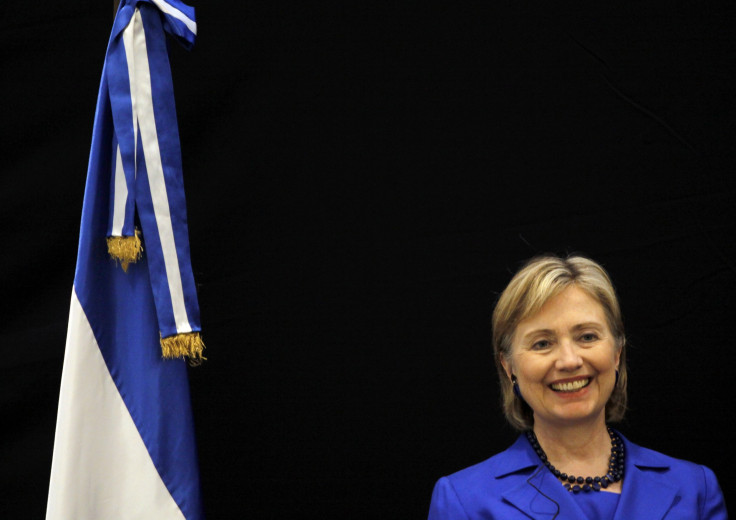Hillary Clinton State Department Memoir Omits TPP Reference In Paperback Edition

Facing an increasingly tough primary fight against Bernie Sanders last October, former Secretary of State Hillary Clinton, now the presumptive Democratic nominee, tried to distance herself from her push to negotiate the controversial Trans Pacific Partnership trade deal during her time atop the State Department (2009-2013). After months of taking positions on the deal that were criticized — even by members of her own party — as vague, Clinton said the deal wasn’t what she’d hoped it might be.
Since then she’s held fast on that position, weathering a primary fight that was anything but expected from the populist, self-described Democratic socialist Sanders, who has repeatedly railed against the TPP. At the same time, a review of the hardback edition of her memoir as secretary of state, “Hard Choices,” compared to the paperback — first noted by the Center for Economic and Policy Research (CEPR) — finds that segments of the book where Clinton describes an effort to convince American countries to join the TPP negotiations have been left out.
We encouraged “all open-market democracies driving toward a more prosperous future to join negotiations with Asian nations on TPP, the trans-Pacific trade agreement,” the original version of the book reads in a two-page segment discussing a 2009 conference in El Salvador. Those two pages have been cut from the paperback version of the book, according to CEPR.
The Trans-Pacific Partnership is a trade agreement among 12 Pacific Rim countries that was signed earlier this year in New Zealand.
That isn’t the only portion of the memoir where Clinton discusses TPP, an International Business Times review found. Earlier in the book when describing her work with China, Clinton noted that there were several potential upsides to negotiating the TPP. In the segment, which does not appear to have been omitted from the paperback versions of the book, she also says that, because the negotiations were ongoing, it made sense to “reserve judgment.”
Negotiating TPP was “important for American workers, who would benefit from competing on a more level playing field. And it was a strategic initiative that would strengthen the position of the United States in Asia,” she wrote.
She then wrote that her positions on trade when running for president in 2008 were similar to that of President Barack Obama’s.
“Our country has learned the hard way over the past several decades that globalization and the expansion of international trade brings costs as well as benefits. On the 2008 campaign trail, both then-Senator Obama and I had promised to pursue smarter, fairer trade agreements,” she wrote. “It’s safe to say TPP won’t be perfect — no deal negotiated among a dozen countries ever will be — but its higher standards, if implemented and enforced, should benefit American businesses and workers.”
Clinton has come under scrutiny for her role in championing TPP negotiations while secretary of state. The presumptive Republican nominee, Donald Trump, has hit her repeatedly on the issue. On Monday his campaign demanded that she release emails from her time working on the deal after an IBT story noted that the State Department had delayed until after the November election a July 2015 request for the documents that the department said would be made available in April.
Sanders has taken a position against TPP, saying it is designed to protect the interests of large, multinational corporations at the expense of consumers and the environment. He says it will hurt poor people in the world as well.
Requests for comment sent to the Clinton campaign and Simon & Schuster, publisher of “Hard Choices,” were not immediately returned.
© Copyright IBTimes 2024. All rights reserved.












